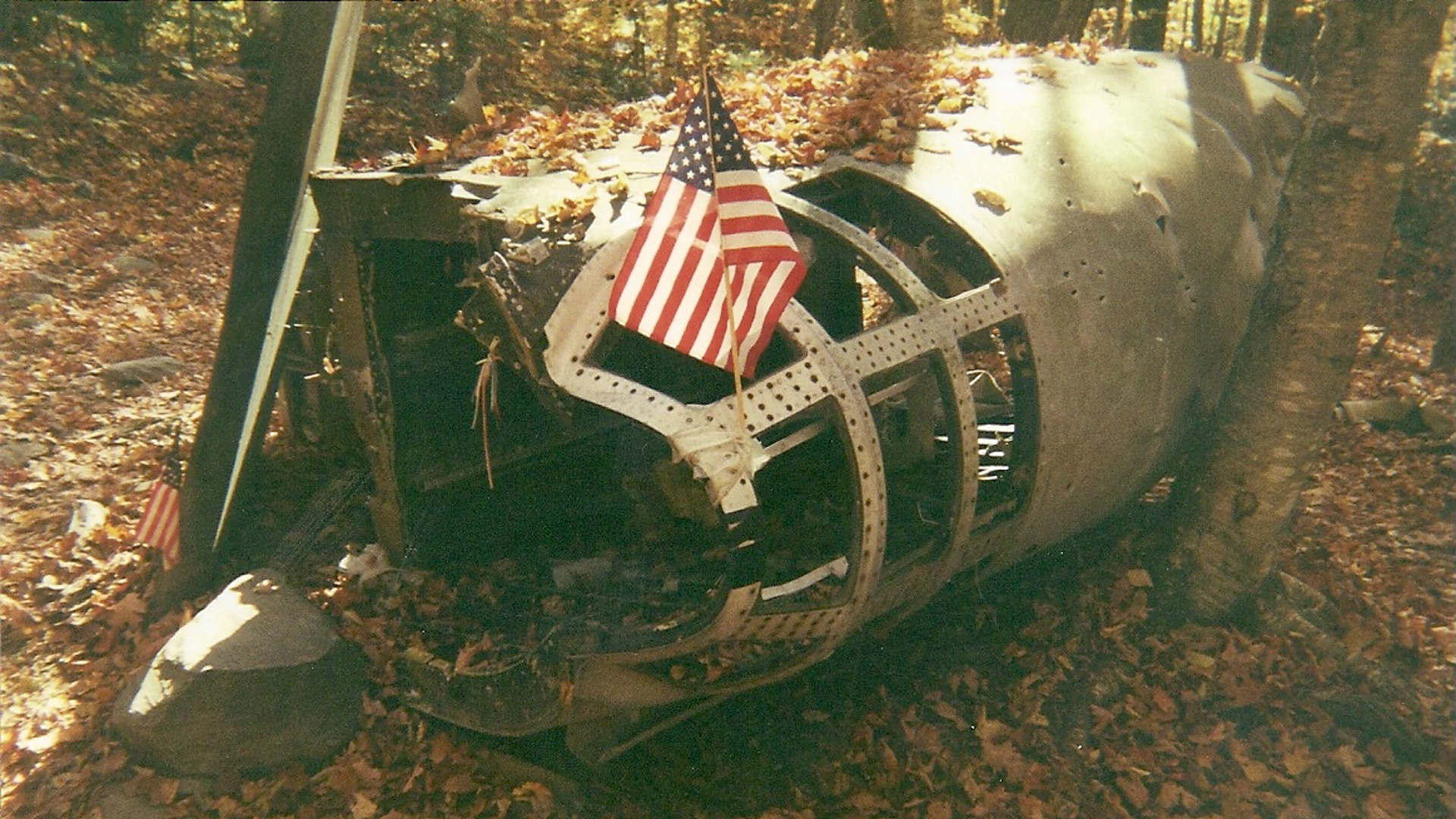

Generally, when a plane crashes with casualties, a memorial is constructed. On the slopes of Elephant Mountain in Maine, however, the crashed plane is its own memorial site, and it’s one of the most haunting things I’ve ever seen.
The airplane came to its final resting spot six miles outside of Greenville, Maine, at the peak of the Cold War, on Jan. 24, 1963. The plane was on a training mission to simulate a low-altitude bombing run, where it would be flying at only 500 feet above the ground. The flight was intended to test new terrain-avoidance capabilities meant to thwart new, high-accuracy Soviet radar systems and the surface-to-air missiles that would prevent a traditional, high-altitude bombing run the B-52 was originally designed for.

Just 95 minutes into the flight, as the crew flew at low altitude, extreme turbulence caused partial disintegration of the aircraft’s tail and it lost its vertical stabilizer. The plane rapidly became uncontrollable and nosed down in a right-hand turn, and the crew began to abandon the ailing B-52. Unfortunately, of the nine crewmembers aboard, only two survived. Six were trapped on board during the impact into the side of the mountain, and one crew member that ejected during descent also perished.
After the accident and investigation, the crash site was simply left in place. The site is relatively easily reachable during the summer months, and a large stone memorial with the names of the fallen crew has been placed near one of the largest pieces of wreckage, making it easy relatively easy for hikers to spot. In years since the crash, a local snowmobile club has organized a ride out on the anniversary of the crash every year to pay tribute to the fallen crew and the initial rescuers that saved the two survivors as well.


Right: Sólheimasandur, Iceland crash / Anders Jildén used under Unsplash License
While it’s unusual for a plane’s wreckage to be left where it sits after a crash, it’s not unheard of. The Bleaklow Bomber, a B-29 carrying 13 crew and passengers near Glossop in the UK, crashed with no survivors in 1948 and its wreckage remains there to this day. In Sólheimasandur, Iceland, the wreckage of a Douglas DC-3 that crashed in 1973 (with no fatalities) still sits on the black sand beaches of the North Atlantic.
As a photographer with an interest in shooting abandoned or wrecked locations, I can understand the appeal of visiting these sites, but I would urge anyone visiting to remember these are also impromptu memorials and tombstones and to treat them with respect.
Got a tip? Email tips@thedrive.com